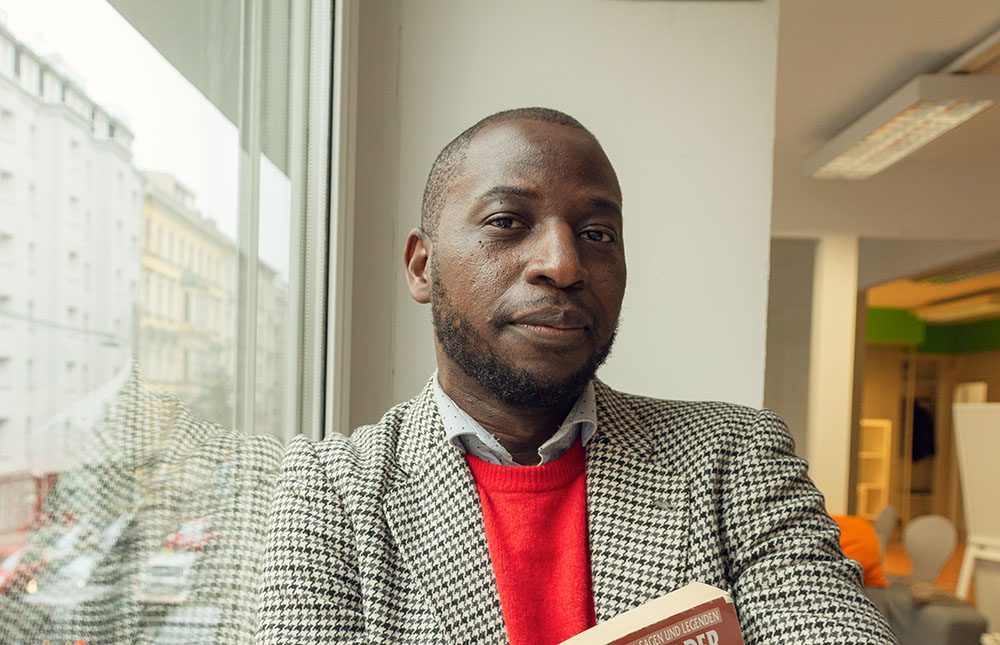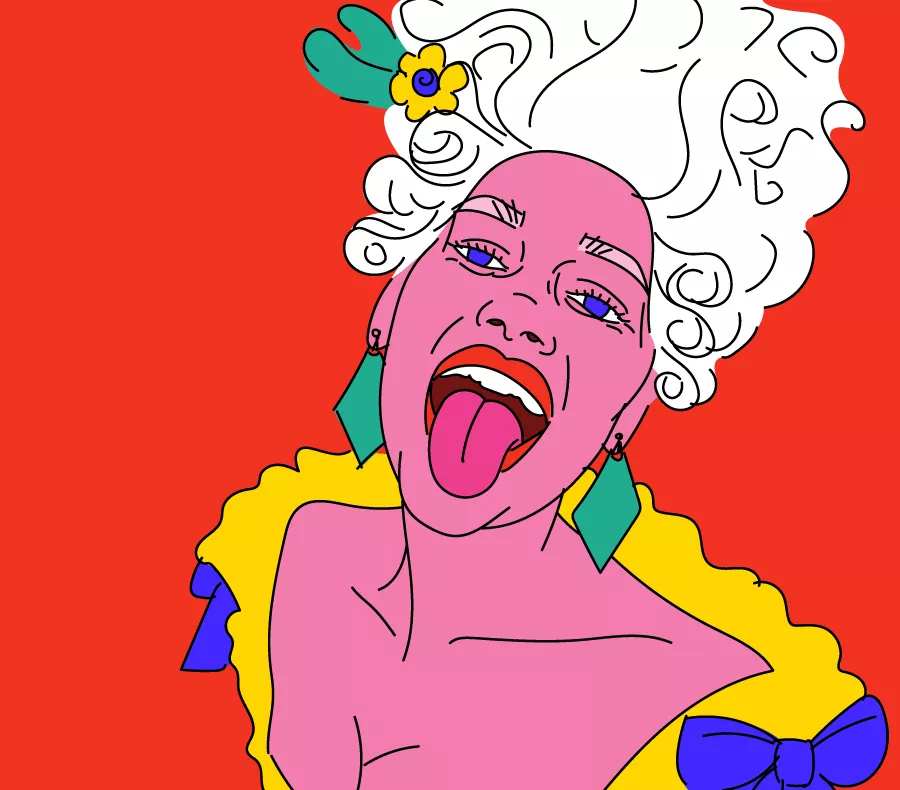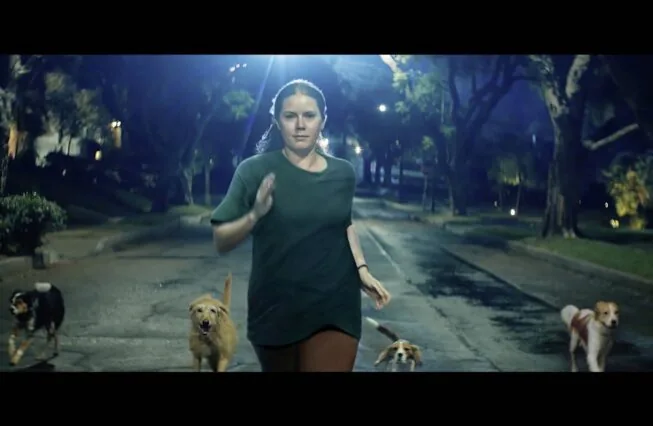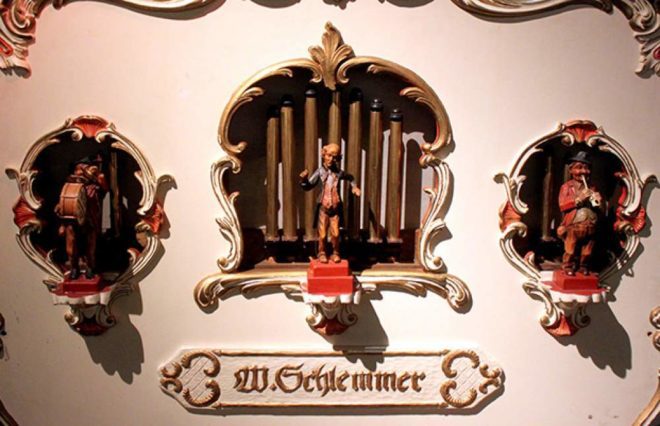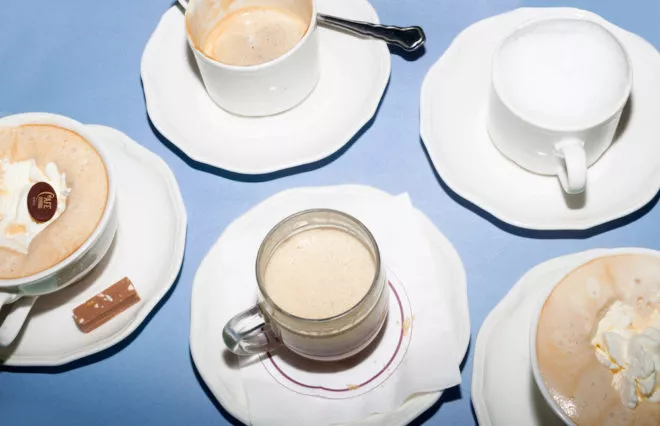After all, we’re all an Ausländer somehow, right?
Meet this week’s Ausländer, Ayo Aloba. We believe it’s safe to call him a man of many talents considering his pursuits in both the performing arts, and other various music ventures (one being a collective with the coolest name – Afroschnitzel!). While still a young boy, Ayo’s parents decided to settle in Austria. We spoke with Ayo about his love for music, for the city and..oh, that one time he got to perform for Michael Jackson?!
Vienna Würstelstand (VWS): You’re a Nigerian DJ, producer and have launched your own collective called ‘Afroschnitzel’ What’s that all about?
Ayo (A): Afroschnitzel is the brainchild of my childhood friend and business partner, Moritz Pommer, and myself. We befriended each other after our mutual admiration for music. I was heavily into my Hip Hop and Soul music, he introduced me to the more eclectic side of Electronic music. Jungle, Drum n Bass etc.
VWS: Did you settle down on your own in Vienna, or did you have any relatives/friends living here prior to you moving here?
A: My parents moved to Austria in 1972 after they joined the Grail movement, which was a spiritual movement. My mother studied nursing and my father was anEngineering Surveyor.
My father was amongst the first black engineers to work for Vienna’s Public Transport. Due to the lack of knowledge and awareness about black people in general in the late ’80’s, he invested in other ways he could empower the next black generation.
VWS: So you make music – how would you describe it to somebody who hasn’t heard it and where can we find some of your beats?
A: Many of my production processes are sample-based. I spend hours listening to a trove of audio materials. Whether it’s archived recordings of African ritual drumming records from the ’50s, or Post-soviet Jazz music from Russia – there are no boundaries. The more eclectic, the better. Without thinking too much, I would just start sketching out beats.
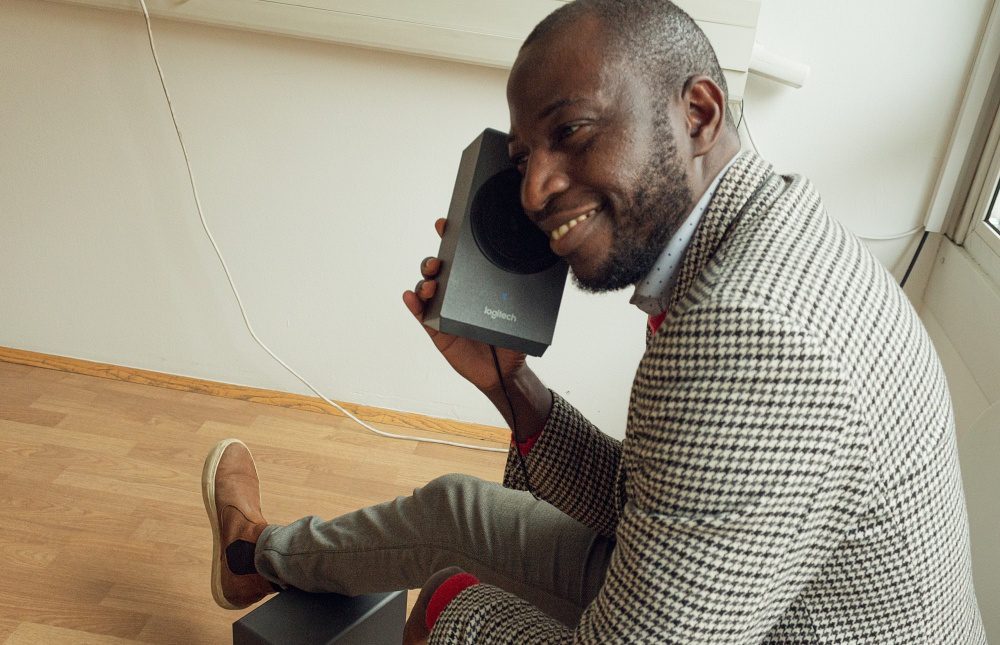
This year, we launched Afroschnitzel Recordings to release our own music projects. We hope to expand and include contemporaries as we grow. For all my projects you can visit me at:
bandcamp.com/search?q=ayotheartist
VWS: If you were a beat, could you describe how you would sound?
A: Definitely a West African Djembe rhythm. The goblet-shaped wood is the foundation. It would be sturdy and proud like a mighty tree trunk. The animal hide is the surface and would roar like a lion to announce its presence.
VWS: Pre- or post- Corona crisis. Which clubs would you recommend for a Vienna newcomer?
A: Although Vienna has improved over the years, its discriminatory door policies are still a problem. It’s best to read reviews like on Vienna Würstelstand, which have a diverse group of international staff. You can also follow our Vienna based collective, ‘Sounds Of Blackness.’ We host a lot of events. Another favourite spot of mine is Monami. Also worthy clubs to mention are Grelle Forelle, Sass Club and Fluc if Techno and House music rattles your bones. Last but not least – Porgy and Bess is an excellent alternative.
VWS: What other fields of the arts do you pursue?
A: I host a monthly radio show on Radio Orange 94.0 called Harmattan Show. I have the honour of interviewing some of the most diverse and exciting BPOC in Austria. From scientists to music activists, and we cover all kinds of different topics.
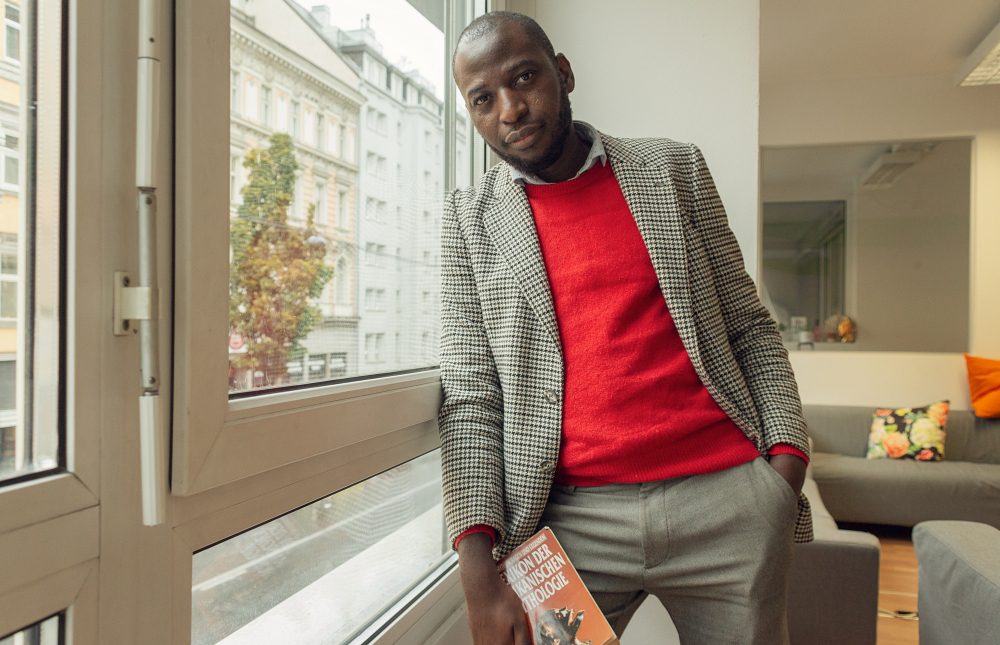
VWS: How did you learn Austrian-German? Was it difficult?
A: Since my parents laid the foundation, it was a bit easier to adapt linguistically. At the end of every month, right before the weekend, my father would take us to our local library as a treat. This was before the internet, so we were pretty excited about all the hidden adventures awaiting us in books like Famous Five, Goosebumps, Christine Nöstlinger, and The Never-ending Story.
VWS: What’s your favourite Viennese word/ phrase?
A: Du Gfrasta! It’s pretty Viennese and used to describe someone who is a bit of a cheeky, or naughty child. Love how the consonants and vowels roll around the mouth.
VWS: Where do you go in the city, or what do you do to recharge your energy?
A: I’m located near Brunnenmarket in the 16th district which is super convenient. There is a strong, vibrant Turkish community with a Mediterranean flair. One direction leads uphill towards Wilhelminenberg either by bus or foot. Perfect for combining hiking and sightseeing. I always feel nostalgic at the top as I spent a chunk of my childhood at a nearby boarding school. The other direction leads you straight to Vienna’s Museumsquartier. Thalia is my chillout bookshop for reading and a tea, especially in Winter.
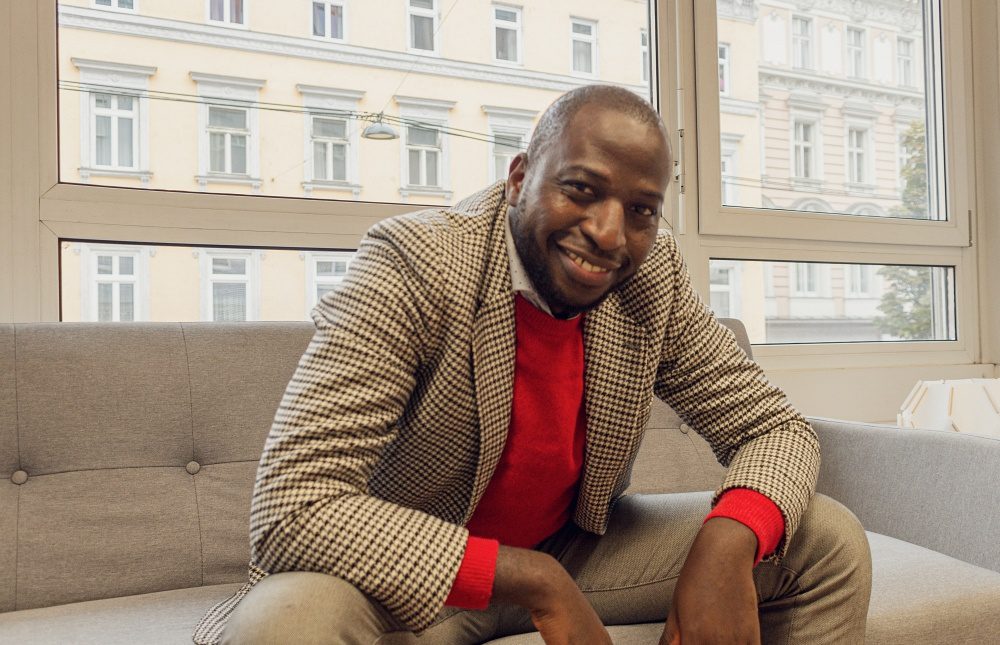
VWS: Has living in Vienna all these years influenced your music style?
A: Indeed. My mum […] managed to get us tickets to see a Michael Jackson concert during his Dangerous Tour in August 1992 at the Ernst-Happel Stadion. My younger sister and I went completely berserk. We were recruited as part of the children who got to perform with him on stage for the Heal The World song.
I can’t tell you how much I wore the audio cassette out to get the song right. Each of us got backstage passes, VIP treatment and some time with the King Of Pop himself.
After he shook my hand and spoke to me, I didn’t wash that hand for like a few days, or so ’cause the scent was still very present. MJ is probably one of my biggest inspirations for venturing into the performing arts.
VWS: Do you listen to any Austrian artists?
A: Yes, although some of the members on the list have made Austria their place of residence. Njideka, Jahson The Scientist, Dorian Pearce, Emily Soulcat, Nonybone, Zion Flex, Item 7, T-Ser, Kareem, Soia, Hightauer, Topoke and Derek Roberts, just to name a few.
VWS: What are the biggest misunderstandings between Austrians and Ausländer?
A: Well, the irony of your question is who is “Austrian” and who is an Ausländer? Austrians today are very proud of their imperial past, but, depending on who you ask, whether it’s Hungarians, Slovakians, Croatians, Slovenians, etc. each of them have their own narrative and historical context. We are all Ausländer together at the end of the day – just some of us are more than others.
VWS: From a societal POV, how has Vienna changed since you moved here?
A: Austrians are very slow to adapt to new influences, and once they do, it comes with terms and conditions. For the 20-odd-years of my club experience in Austria, one of the most dehumanising experiences for black people is the event’s door policy. What gets me is that when the theme of [an] event is black-orientated music […] the shareholder, club owner, event and booking management, bouncer and the (mostly caucasian) DJ are all benefitting at the cost of black trauma and racism. That to me, is the irony of it all.
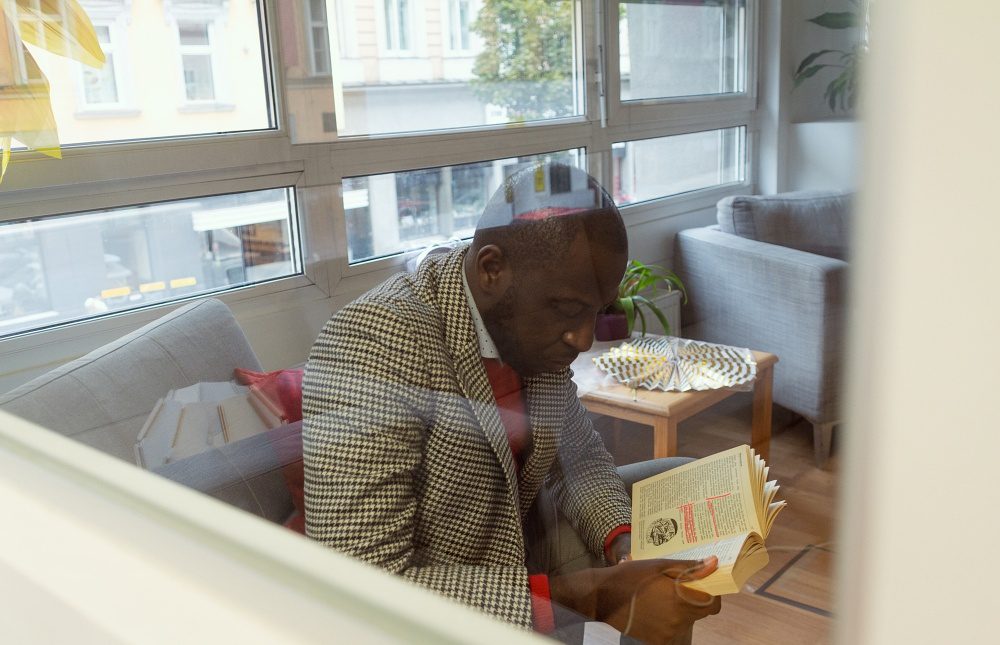
VWS: Did you ever consider settling back in Nigeria? Why/ why not?
A: I have lived more years outside of my native country of birth than inside of it. It’s always going to be my home. As Nigerians, we are extremely resilient but have an adaptive approach to any place, or setting. Paraphrasing the historian Robert Farris: Until you know how African you are, you will never know how Austrian you are.
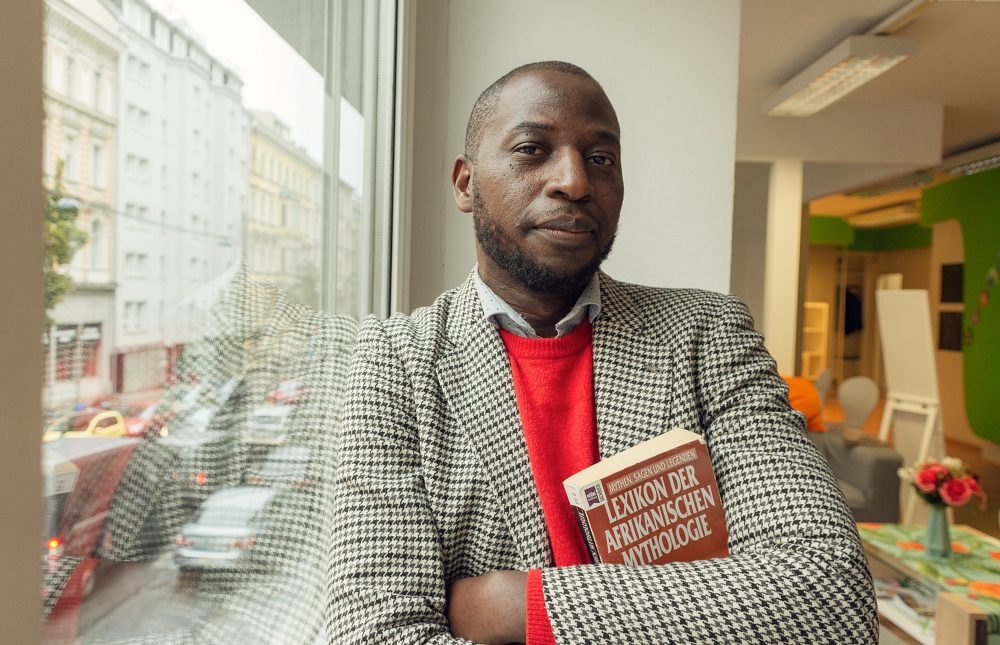
VWS: What’s it like to be a Nigerian in Vienna? You know..compared to a Nigerian who was born and raised in Vienna.
A: I’m grateful for being able to spend the seminal part of my childhood in Nigeria. It validated my sense of identity and heritage. If you were born in the diaspora, I think it’s essential to return to the home of your ancestors. You are infinitely connected, whether both parents are African, or you have dual heritage, or whatever. Even if you remove it by a half, a quarter, one-eighth, one-sixteenth and so on. The prime number is always one. You will always be one with the source.
VWS: Where can you eat good Nigerian food in Vienna?
A: […] I would recommend Afroritos, which is an online catering restaurant set up by my Nigerian friend, Uschi Blast, and his business partner, Day Oko. They focus on serving up authentic Nigerian food, like Jollof, coconut rice, meat pie, etc. Don’t be surprised if you end up in a queue while waiting for their food. In our country, that’s a good sign.
VWS: Austria’s very different from Nigeria, obviously – can you tell us how?
A: One of the major differences is that Nigerians speak with a vernacular passion that can vary in pitch tonality and decibels. This vibrancy is often classified by Austrians as being “loud” or “aggressive.”

